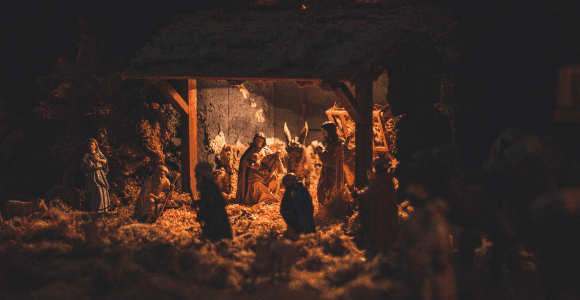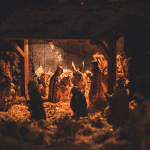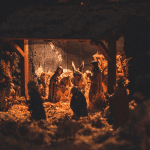
We’ll continue our Advent reading here by considering the social, economic and political context in which the gospel of Luke was written. And this is why in Luke’s gospel we meet Zacchaeus, a tax collector. Tax collectors were an integral part of this exploitative system, and they become wealthy themselves as a result. Luke introduces a few tax collectors (e.g. Luke 3:12, 5:27–30, 7:29, 34, 15:1, 18:10–13), but the most infamous of them is Zacchaeus. When Zacchaeus encounters Jesus’ teachings, he chooses to reject the system that made him wealthy and embraces a path of restoration and reparations instead (see Luke 19-10).
Welcome Readers! Please subscribe to Social Jesus Here.
(Read this series from its beginning here.)
In Luke’s gospel we learn what moved Zacchaeus to change. It was Jesus’ teaching of “the Kingdom” as contrasted with the Roman Empire. Though the language of Kingdom is complicated and challenges readers today, its original audience would have understood it as a contrast to Rome’s system of imperial predation.
After all, Jesus’ ministry in Luke begins with him calling for all debts to be cancelled in the year of Jubilee, the year of the Lord’s favor (see Luke 4:18-19). Jesus’ gospel of the kingdom (and Advent, too) called for debts to be cancelled and for the Torah practices of land being given back to its original owner, indentured slaves being set free, and debt cancellation. This debt was how the system kept the masses permanently dependent and the few elites as continual recipients of funneled wealth. Jesus’ solution was simply to cancel all the debts as the Torah had taught. His “kingdom” wasn’t about saying a special prayer so you could go to heaven when you died. It was a life-giving system in the here and now as an alternative to Rome’s system of economic extraction.
In Luke’s gospel, we also encounter what we call today Mary’s Magnificat:
He has brought down rulers from their thrones
but has lifted up the humble.
He has filled the hungry with good things
but has sent the rich away empty. (Luke 1:52-53)
The words of Simeon are similar:
“This child is destined to cause the falling (elite, rich rulers) and rising (poor and hungry) of many in Israel.” (Luke 2:34)
Repeatedly in Luke, Jesus calls his listeners to reject Rome’s predatory system and embrace the Kingdom instead (see Luke 12:13-31). Jesus says things to those benefitting from Rome’s system like, “Watch out! Be on your guard against all kinds of greed; life does not consist in an abundance of possessions.” (Luke 12:15)
The word for greed here is pleonexia. Thayer defines this as the covetousness or the desire to have more specifically what others have. It is the insatiable desire for what belongs to another. This is exactly what was happening at that time. The wealthy elite were insatiable, extracting everything the masses had to enrich themselves. The Roman power brokers ran after such things too, but Jesus announced the Advent of a different “kingdom” and tells his listeners, “Seek first the kingdom, and all that you need will be given to you” (Luke 12:31). Today we here in the U.S. live in a debt economy with many experiencing only subsistence living. I wonder how Luke’s gospel would read if it was written for us?
We’ll explore that, last, as we wrap up our final series this year for Advent.
(Read Part 3)














